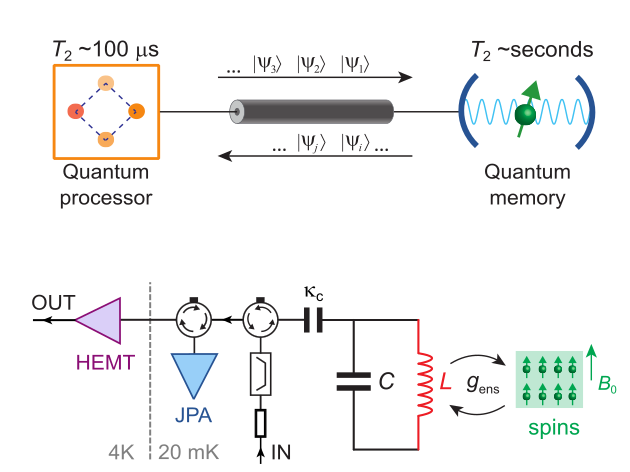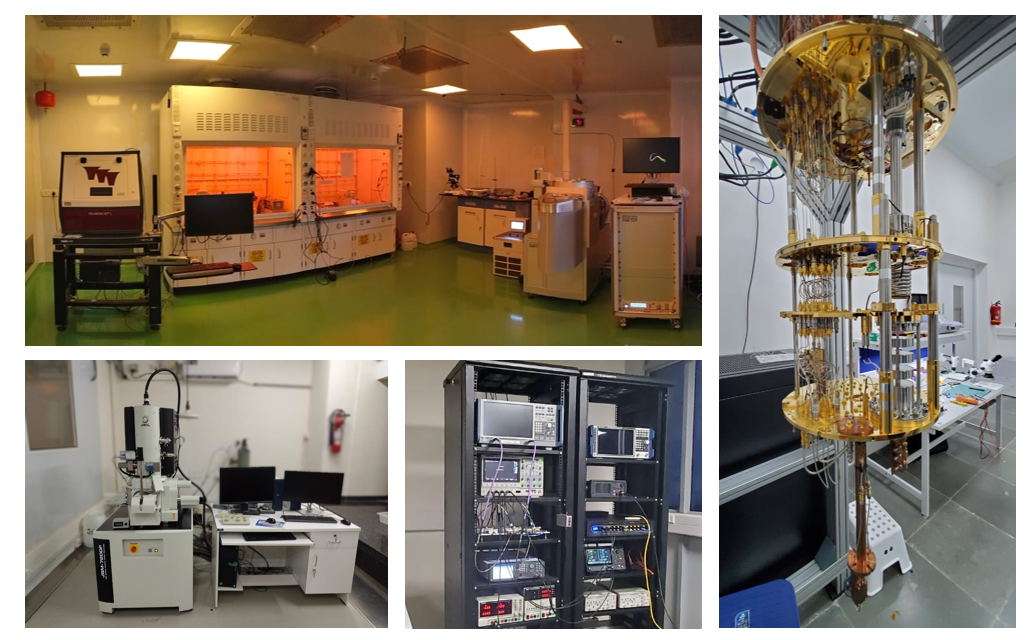Research Overview

Electron spins in solids can routinely support long coherence times with values reaching seconds. We believe coupling them to superconducting qubits, such as transmons, can realize a modular quantum computing with separate processor and memory elements, and thus greatly reduce overheads of QEC, power consumption and qubit scaling.
Our approach is to inductively couple an ensemble of spins to low-dissipation superconducting resonator with large coupling strength enabling high fidelity swap of microwave photons between the transmission line and spins. The states are stored in the orthogonal modes of the spin ensemble, and coherently read out using quasi noise-less quantum-limited amplifiers.
Research Facilities

Our lab and the institute house necessary state of the art measurement and fabrication facilities. We have a class-1000 cleanroom equipped with wet benches, laser maskless lithography, reactive ion etcher and scanning electron microscopy/electron Beam lithography. For measurements, we have all essential microwave electronics such as network and spectrum analyzers, arbitrary waveform generator, signal generators, oscilloscope etc. Lastly, a dilution refrigerator with customized probe and wiring reaches temperatures as low as 10mK and vector magnetic field strengths up to 1 Tesla.

